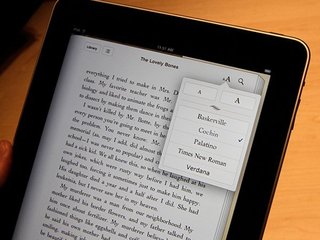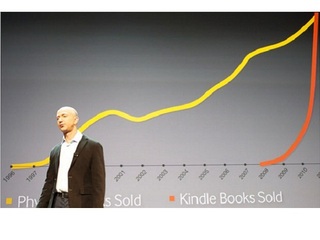Global AI in healthcare market expected to rise to $164B by 2030
The market size for 2023 was $10.31 billion
Read more...
After years of battling, the fight between Google and the Authors Guild is finally coming to a head, and the Guild has just presented a key piece of evidence, showing what Google’s intentions may have been all along, and possibly blowing up Google's entire case.
In a filing this past Friday, the Authors Guild has presented evidence that it says shows that Google created the program for profit, and to crush a competitor.
According to the filing presented, a 2003 internal presentation Google specifically stated that its goal was to drive business away from Amazon.
"We want web searchers interested in book content to come to Google, not Amazon," the presentation stated. "Everything else is secondary ... but making money."
They also allege that in an October 2004 PowerPoint presentation, Google stated that its goal with the project was to “gain a competitive edge.”
The key to the entire case is whether or not Google’s actions constitute fair use, which, under U.S. copyright law, only applies in cases where the material was not used commercially.
Google has claimed the works fell under fair use because the copies were made available to libraries and only small amounts of the text could be searched for. The Guild argues that copying works does not fall under this provision because Google was attempting to make a profit, as the evidence they presented to the court is meant to show.
Fighting for years
The two have been battling over whether or not Google was engaging in illegal activity by digitizing and distributing their works since 2005.
Google's Library Project, also now known as Google Book Search, has been around since December 2004, and has been presented as a way to benefit the public good.
“The Library Project's aim is simple: make it easier for people to find relevant books – specifically, books they wouldn't find any other way such as those that are out of print – while carefully respecting authors' and publishers' copyrights,” it states on the Google Books homepage.
“Our ultimate goal is to work with publishers and libraries to create a comprehensive, searchable, virtual card catalog of all books in all languages that helps users discover new books and publishers discover new readers.”
Google began the project by digitizing books from the libraries of the University of Michigan, Harvard University, Stanford University, Oxford University and the New York Public Library.
From the beginning, however, The Authors Guild vehemently disagreed with the way that Google presented the project. They accused the company of not scanning books simply out of the goodness of their heart, but for profit.
The two parties had previously settled the matter in 2008, with Google agreeing to pay $125 million, only to have that settlement rejected by a U.S. Circuit judge.
The Authors Guild is now asking for $750 for books that Google had digitized while they were still protected by copyright. That would cost Google over $1 billion if it loses.
Read the Authors Guild filing below:
Google Books Statement of Facts Aug 2012
(Image source: freshome.com)
The market size for 2023 was $10.31 billion
Read more...At Culture, Religion & Tech, take II in Miami on October 29, 2024
Read more...The company will use the funding to broaden the scope of its AI, including new administrative tasks
Read more...



